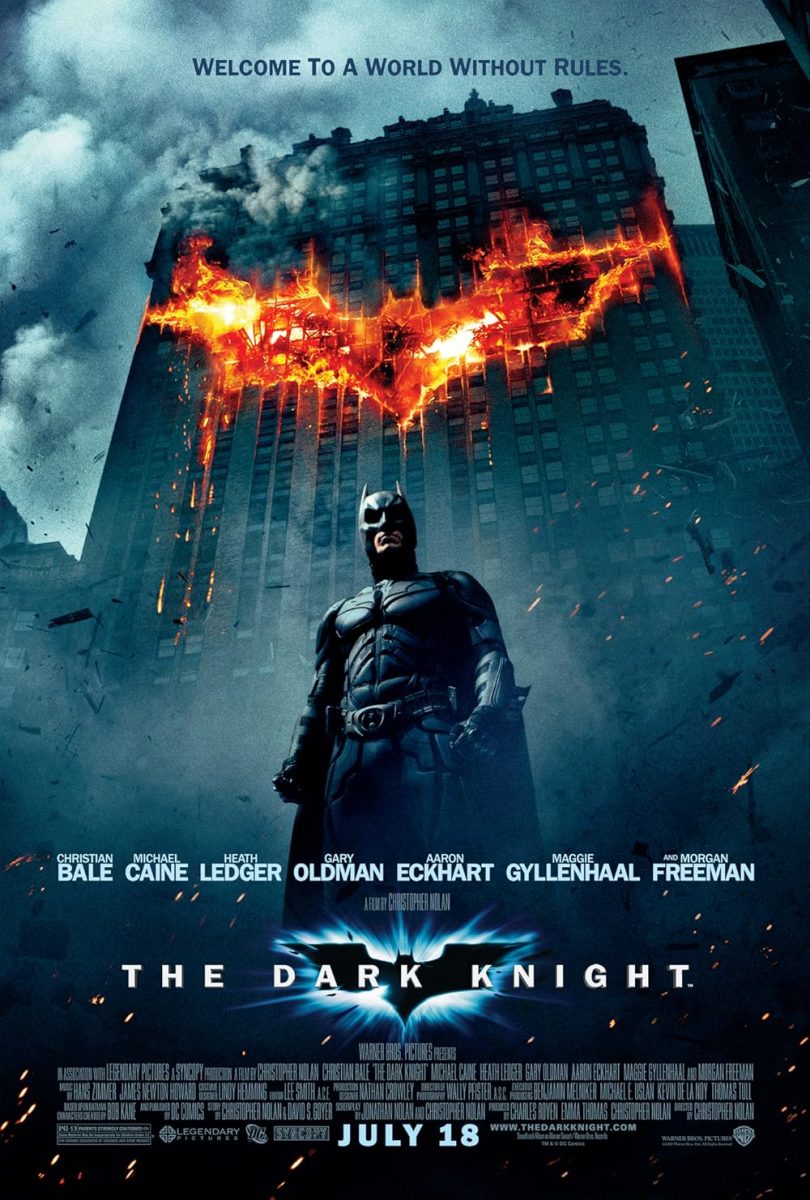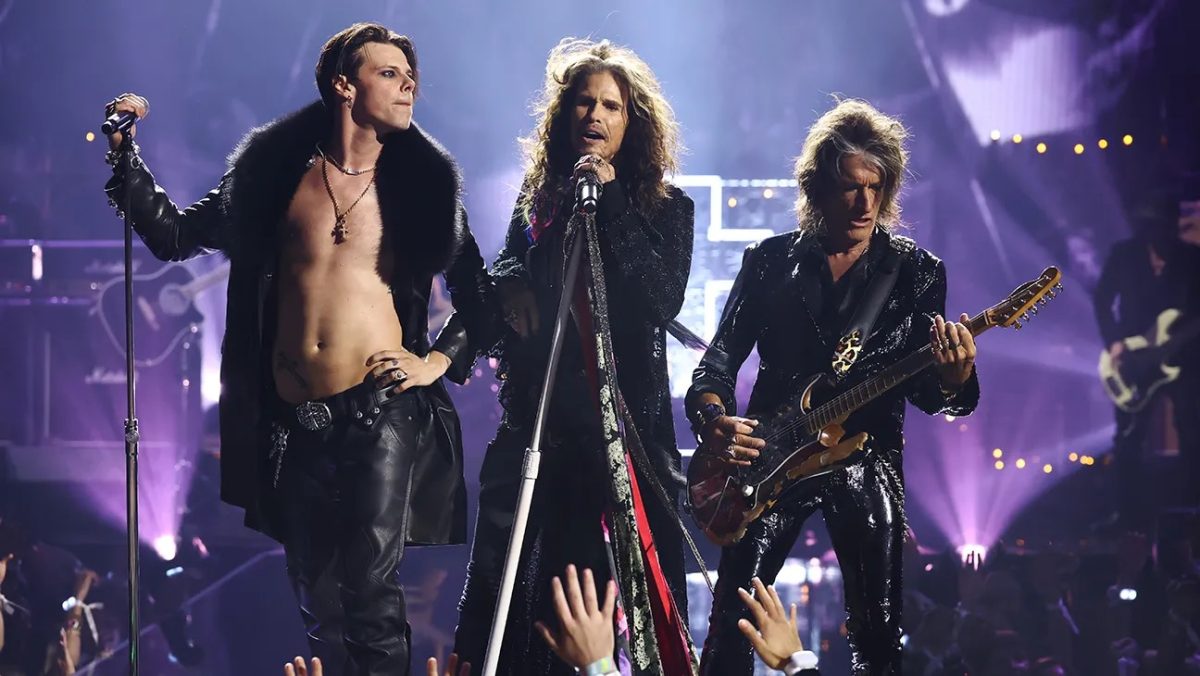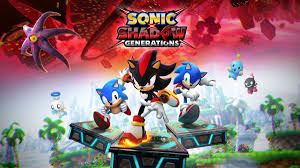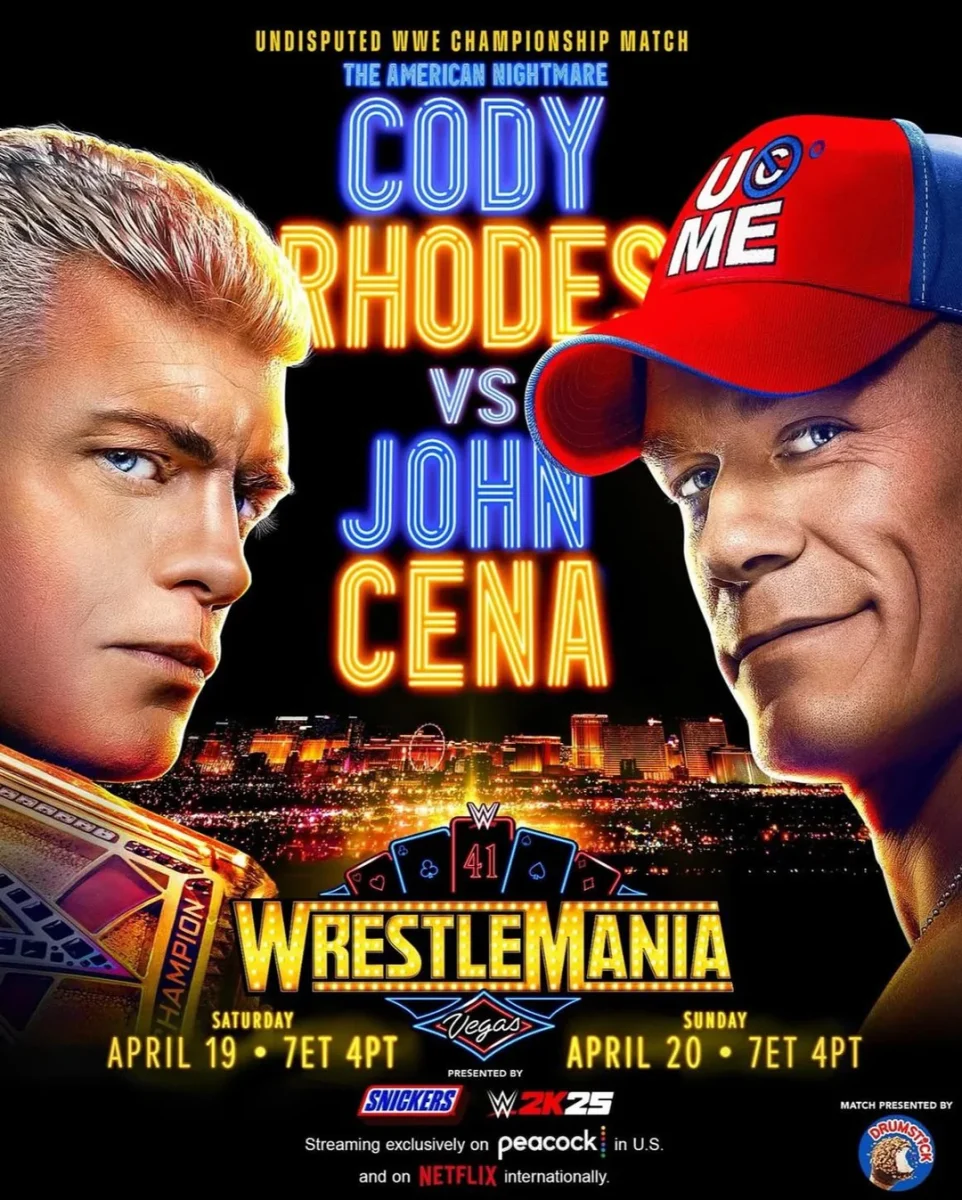Although the character of Batman has been adapted in countless movies, shows, comics, video games, and more, few creative directors have been able to understand Gotham in the way Christopher Nolan does.
The Dark Knight Trilogy includes the movies “Batman Begins”,” The Dark Knight”, and “The Dark Knight” Rises, notably starring Christian Bale, Heath Ledger, Anne Hathaway, Morgan Freeman, and many other incredible actors. With this star-studded cast and the exorbitant budget at a combined total of more than half a billion dollars, Nolan created a masterpiece that has gone down in hero-media history.
Under Nolan’s direction, the gruff selflessness of Batman juxtaposed by the playboy Bruce Wayne persona was portrayed expertly, leaving the audience with a desperate plea for just anybody to truly understand him. The true character-writing star, though, seemed to be Alfred Pennyworth, Wayne’s loyal butler. Although the editing style in the first two movies is hard to look at during fight montages, the action direction was done incredibly well; there were several times when I gasped after a particularly impressive acrobatic move from Christian Bale or a shocking and sudden death caused by the Joker in mere seconds. All of this, though, would not be possible without the amazing acting from Bale and almost every villain in the series.
The character writing overall for the trilogy was pretty well done, except for some key characters like Ra’s Al Ghul, his accompanying gang, and his daughter, Talia. One particular storyline that I thought really shined though, was Alfred’s arc throughout the trilogy. He started off in the first movie as a caretaker for the depressed Wayne, but is ready and happy to help with the batman project since he knows that is the way Wayne will be able to get back up on his feet and live a life again. He’s an omnipresent symbol of stability for Wayne in “Batman Begins”, but not so much a character of his own.
It isn’t until “The Dark Knight” that we get more depth on Alfred himself. After Rachel hands him her letter of rejection addressed to Wayne, Alfred is faced with two choices: give it to the heartbroken Bruce who saw the love of his life die, but respect the wishes of the dead Rachel, or burn it to spare Wayne’s feelings, but forever feel the guilt of knowing she would have never chosen Wayne even if she lived. The guilt heightens after he chooses the latter, but Wayne is now disabled, extremely depressed, and won’t leave the house.
“The Dark Knight Rises” is where we see the least of Micheal Caine, but the presence of Alfred is at its strongest. His love and his care for the man behind the mask forces him to leave the manor, in hopes that it will finally get Wayne to stop torturing himself for a city that despises him. His most wonderful dream is described to be one where Wayne runs away from Gotham and lives a life with someone he loves, hopefully without Alfred himself being in the picture at all. As Wayne lives without Alfred, the audience is left pondering the true presence of Alfred that seems so minor before, but now feels so empty without him. The growth of Alfred as a character where he ends up being his own person with his own choices is what I believe to be the best part of the movies. I cried seven times total throughout the movies and every single one involved Alfred in some way. Micheal Caine portrays the character in such a beautiful and steadfast way, making him more than just a one-dimensional support character.
Micheal Caine isn’t the only amazing actor of the cast, as the acting of most main characters in the movies is why this trilogy is so highly regarded. The real acting star that I think set the precedent for all actors of this character forever on is Heath Ledger as the Joker. His no-bounds-had approach on the infamous villain was new to the screen in an almost scary way. The late actor had a way with manipulating his mannerisms to fit the role that I haven’t seen in another actor since. Although the Joker might seem like a silly character from afar, after seeing him in the trilogy I started to get genuinely nervous after he would come to the scene. Heath Ledger’s acting was even a huge inspiration for the following standalone Joker movies, starring Joaquin Phoenix, that earned multiple Oscars. Some of the other acting, specifically from Marion Cotillard as Talia Al Ghul, was weak and seemed to be simply reading lines off of a script. The level of embodiment that Heath Ledger reached was unattainable for many actors in the trilogy, but the acting in general was, what I consider to be, quite good.
One thing about the movies that I didn’t enjoy as much was the editing. It seemed at times (especially in “Batman Begins”) that Nolan was afraid of lingering a shot, leading to him cutting every single shot incredibly early. It almost hurt my head to watch at times when there would be eight different camera angles of the same thing in just five seconds. It was a popular editing style at the time so I understand that aspect of it, but the fast pace was just not for me. The action scenes were saved by the incredible choreography of Batman and his impressive acrobatics that were sometimes captivating enough to distract me that I just saw 12 different angles of a single cool kick.
Overall, I think that the trilogy had some overwhelming strengths while only a few small weaknesses. I would definitely recommend this to anyone wanting to get into Batman as a character or wanting to binge the best Nolan movies. I would rate The Dark Knight trilogy an 8/10.







